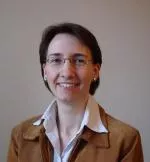
Whose choice? ICTs for “development” and the lives people value
Dorothea Kleine, Lecturer at the UNESCO Chair/Centre in ICT4D, Royal Holloway, University of London
Tuesday, February 15, 12:30 pm
Berkman Center, 23 Everett Street, second floor
RSVP required for those attending in person to Amar Ashar (ashar@cyber.harvard.edu)
This event will be webcast live at 12:30 pm ET and archived on our site shortly after.
Recognising that ICTs are powerful tools shaping people’s everyday lives, practitioners, policy-makers and academics in the ICT for development (ICT4D) field engage with these technologies in the name of “development”. Yet understandings of development differ and too often remain implicit and removed from participatory processes involving the intended users. Techno-euphoria and the focus on universal access distracts from the very individual choices people should have to integrate technologies in their everyday practices (or not). Working with Amartya Sen’s capabilities approach and its view of development as freedom, this open conversation will discuss the diverse and potentially conflicting ideologies embedded in state ICT policies and technical artefacts and the intended and unintended consequences. It will explore potential technological and process innovations which could lead to more participatory decision-making on policy and technology design – an area where all countries can be classified as “developing”.
About Dorothea
Dorothea Kleine is Lecturer in Development Geography at the UNESCO Chair/Centre in ICT4D at Royal Holloway, University of London. Her work focuses on the relationship between notions of “development”, choice and technology. She is a Fellow of the Royal Geographical Society (with the IBG) and has worked as a consultant/advisor to EuropeAid, DFID, GTZ and to NGOs. She is the author of Surfen in Birkenstocks (Oekom, 2005), a book on the potential of the Internet for the Fair Trade movement and has recently been managing action research using smartphones to assist socially and environmentally responsible consumption choices (www.fairtracing.org). She is currently completing her new book, Technologies of Choice (MIT Press) which offers an operationalisation of the capabilities approach for evaluation and project design in ICT4D.
Links
- Statement paper: '“None but ourselves can free our minds” – Development, Technological Change and Escaping the Tyranny of Direct Impact
- Theoretical paper: "ICT4What: Using the Choice Framework to Operationalise the Capability Approach to Development", Paper presented at ICTD2009, Doha, 19th April 2009
- More on Dorothea